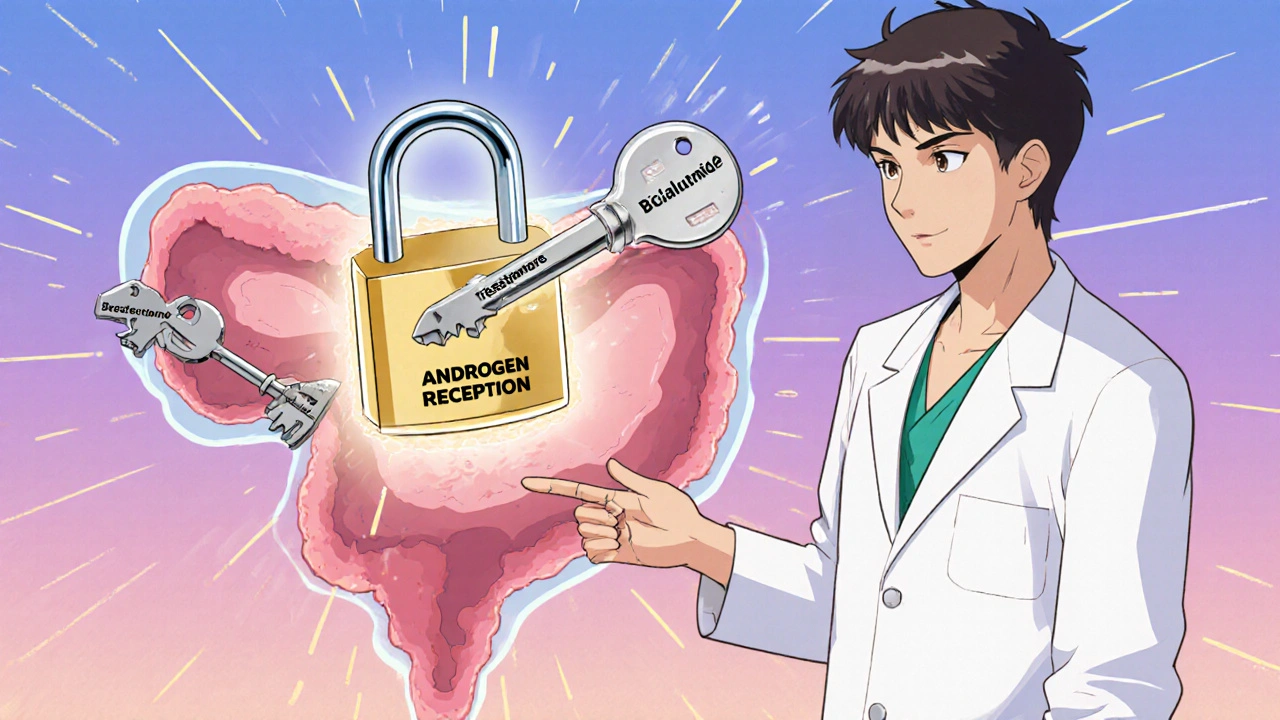When you hear Bicalutamide, a non-steroidal anti-androgen medication used primarily to treat prostate cancer by blocking testosterone's effects on cancer cells. Also known as Casodex, it’s one of the most common hormone therapies prescribed for men with advanced prostate cancer. Unlike chemotherapy, which attacks fast-growing cells broadly, Bicalutamide works like a lock and key—fitting into testosterone receptors so the hormone can’t fuel tumor growth. It doesn’t kill cancer outright, but it slows it down, often for years, especially when paired with other treatments like LHRH agonists.
This drug doesn’t work alone. It’s part of a bigger system called androgen deprivation therapy, or ADT. That means it’s often used alongside drugs that lower testosterone production, like leuprolide or goserelin. Together, they create a one-two punch: reduce the hormone supply and block what’s left. Bicalutamide is also used in cases where surgery isn’t an option, or when patients want to avoid the side effects of castration. It’s taken as a daily pill, which makes it easier to manage than injections or implants. But it’s not for everyone. Men with liver problems need careful monitoring, and some report fatigue, hot flashes, or breast tenderness—side effects that can be hard to ignore but are usually manageable.
What makes Bicalutamide stand out isn’t just its effectiveness—it’s how it fits into the bigger picture of cancer care. Compared to older anti-androgens like flutamide, it has fewer liver-related risks. Compared to newer drugs like enzalutamide or apalutamide, it’s cheaper and has been around longer, so doctors know its long-term behavior. But it’s not always the first choice anymore. In high-risk cases, doctors now often jump straight to stronger next-gen drugs. Still, for many men, especially those with early-stage or localized disease, Bicalutamide remains a solid, well-tested option. And because it’s generic now, it’s one of the most affordable tools in the prostate cancer toolkit.
You’ll find posts here that compare Bicalutamide to other hormone blockers, dig into its side effects, and explain how it stacks up against newer treatments. Some articles look at how it’s used in combination with radiation, others track real-world outcomes over five or ten years. There’s also guidance on what to do if your body stops responding to it—because that happens, and it’s not the end of the road. Whether you’re a patient, a caregiver, or just trying to understand what’s happening, this collection gives you real, no-fluff insights. No marketing. No hype. Just what the science and experience show.

A clear, up‑to‑date guide on Bicalutamide covering its uses, dosage, side effects, monitoring, and drug interactions for prostate cancer patients.